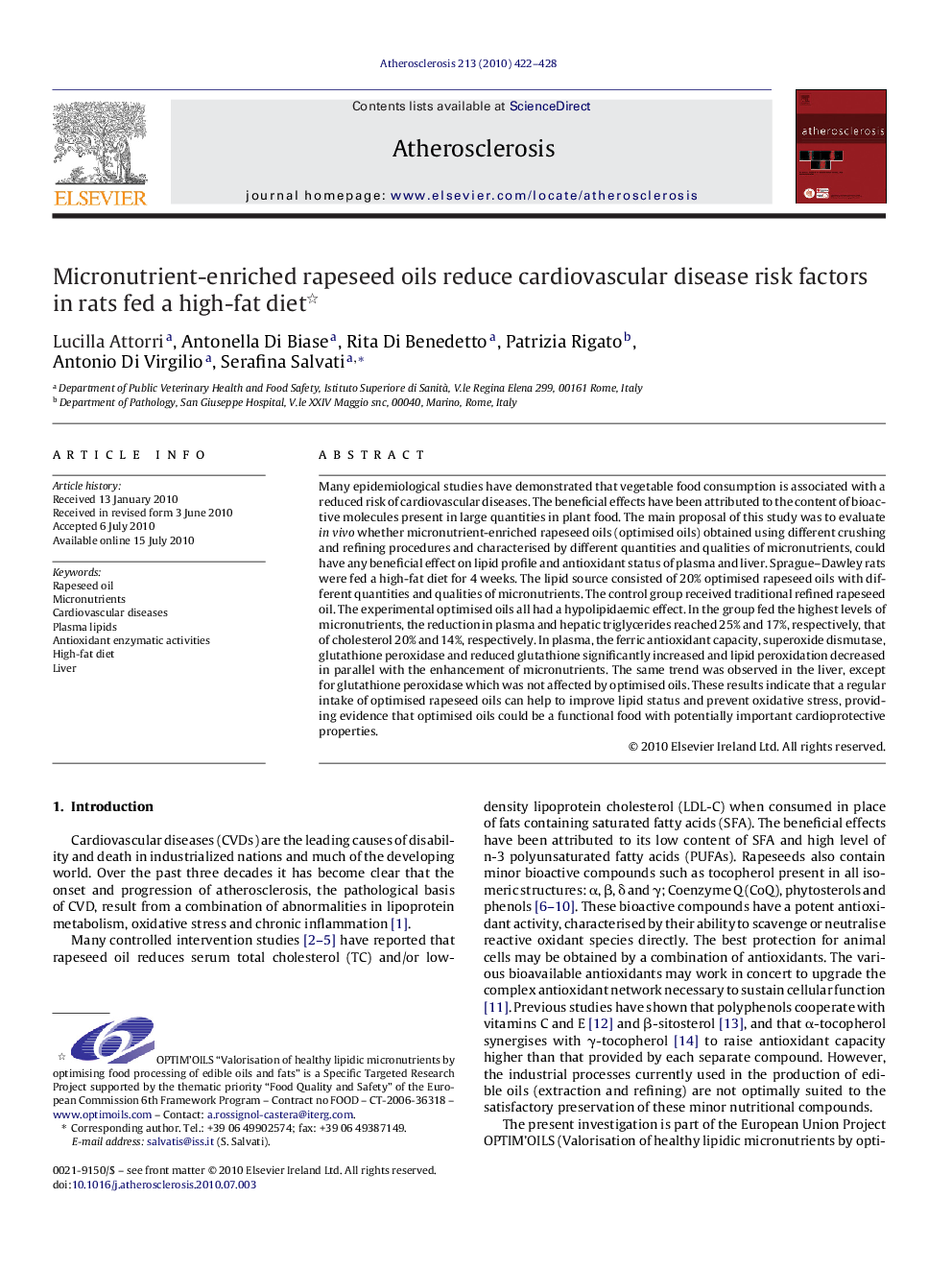| Article ID | Journal | Published Year | Pages | File Type |
|---|---|---|---|---|
| 2892936 | Atherosclerosis | 2010 | 7 Pages |
Many epidemiological studies have demonstrated that vegetable food consumption is associated with a reduced risk of cardiovascular diseases. The beneficial effects have been attributed to the content of bioactive molecules present in large quantities in plant food. The main proposal of this study was to evaluate in vivo whether micronutrient-enriched rapeseed oils (optimised oils) obtained using different crushing and refining procedures and characterised by different quantities and qualities of micronutrients, could have any beneficial effect on lipid profile and antioxidant status of plasma and liver. Sprague–Dawley rats were fed a high-fat diet for 4 weeks. The lipid source consisted of 20% optimised rapeseed oils with different quantities and qualities of micronutrients. The control group received traditional refined rapeseed oil. The experimental optimised oils all had a hypolipidaemic effect. In the group fed the highest levels of micronutrients, the reduction in plasma and hepatic triglycerides reached 25% and 17%, respectively, that of cholesterol 20% and 14%, respectively. In plasma, the ferric antioxidant capacity, superoxide dismutase, glutathione peroxidase and reduced glutathione significantly increased and lipid peroxidation decreased in parallel with the enhancement of micronutrients. The same trend was observed in the liver, except for glutathione peroxidase which was not affected by optimised oils. These results indicate that a regular intake of optimised rapeseed oils can help to improve lipid status and prevent oxidative stress, providing evidence that optimised oils could be a functional food with potentially important cardioprotective properties.
